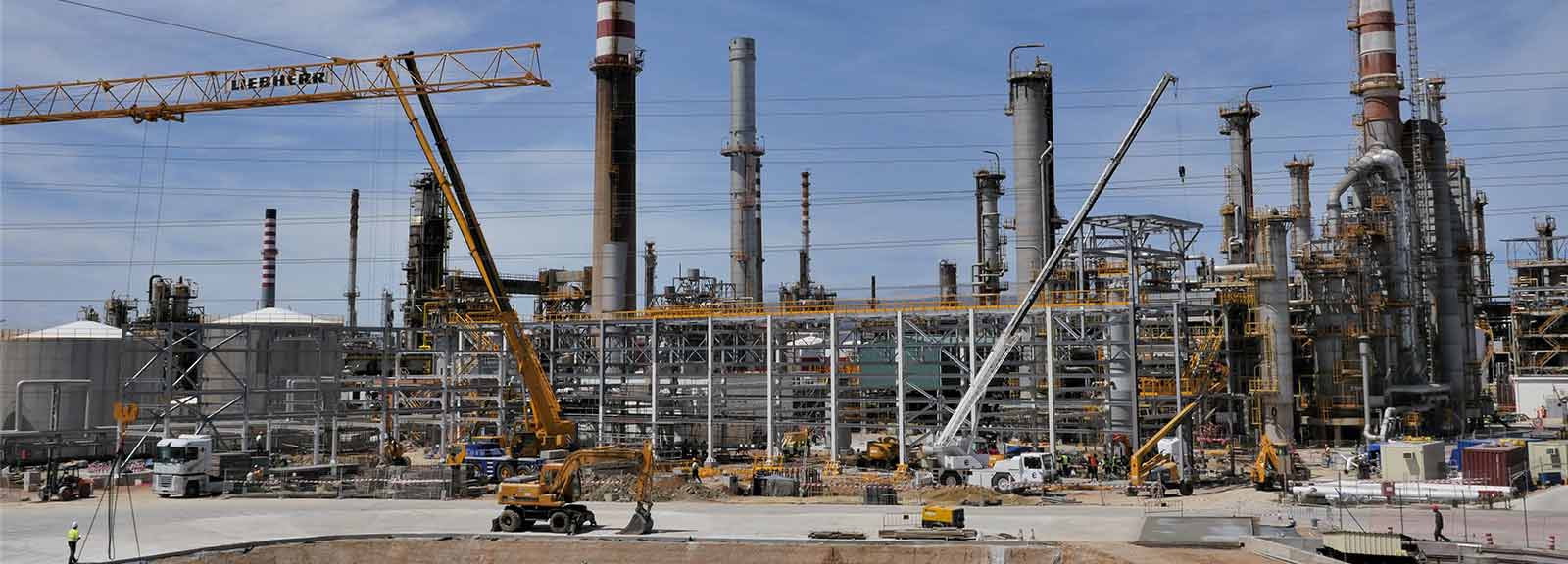Chemical plant construction is a complex and very expensive process. As a result, chemical plant construction financing can be a daunting task.
Viola Funding Limited offers a long-term financing for a chemical plants construction around the world, including project finance and loans.
Cost of funding for a chemical plant construction today
The constructing a chemical plant project cost can vary greatly depending on the size and complexity of the facility.
Reports has it by the American Chemistry Council, the average cost of building a new chemical plant in the United States is approximately $1.2 billion. However, this figure can vary widely depending on the specific plant being constructed. Given the diversity of engineering solutions, technological processes and specific chemical products, it is extremely difficult to compare the cost of individual projects in this area.
Factors that can impact the cost of building a chemical plant include:
•Technological no-how. The specific technology used in the chemical plant can also impact the cost of construction. Newer and more advanced technologies can be more expensive to implement, but they can also provide significant savings and other benefits in the long run.
•Complexity and Size. The scale and technical complexity of a chemical industrial facility can also impact the cost of the project. Large and sophisticated plants require much more resources and time to complete, which can drive up costs.
•Location. The cost of construction can vary depending on the location of the plant. Factors such as land cost, logistics, labor costs, environmental protection measures and regulatory requirements can all impact the total cost of the investment project.
These technologies, widely implemented in modern enterprises, provide customers with a lot of benefits in the medium and long term financing for construction projects, although they increase the cost of projects in some cases by 30-50% compared to the old approaches.
On the other hand, developing countries as a construction site may be severely limited by access to qualified personnel and appropriate technology.
Construction Financing of chemical plant; our service
Financing the construction of a chemical plant can be a complex process. Such capital-intensive projects usually require long-term debt financing, including syndicated loans, loans issued by large private investors and other sources of borrowed funds. There are many different financing options available to businesses, each with its own advantages and disadvantages.
Most common financing options for chemical plant construction include:
•Government financing. There are a variety of government financing programs available to businesses that are building new chemical plants. These programs can provide low-interest loans, tax credits, and other forms of financial support.
•Debt financing. Debt financing involves borrowing money from lenders. This can include bank loans, private investment loans, bonds, and other instruments. Debt financing can be a good option for companies that have a strong credit rating and a clear plan for repayment.
•Equity financing. The so-called equity financing involves selling ownership shares in the business to investors. This can be a viable option for businesses that are just starting out or that have limited access to other financing options.
Expensive chemical plants and projects in the world
Chemical technology is constantly evolving to keep pace with business and customer needs, while meeting tight environmental and safety standards. The cost of individual samples of chemical equipment manufactured to order for a particular client can reach tens of millions of dollars.
Giant reactors, heat exchangers and agitators, assembled on site from numerous elements, require hundreds and thousands of skilled workers from different fields.
A modern chemical plant is always a serious engineering, logistical, commercial and financial challenge for the companies participating in the project.
Below, you can find the list of the most expensive chemical plant in the world
•Sasol in Louisiana, USA Sasol produces a range of widely used chemicals, including ethylene and propylene. In 2015, the volume of investments in the construction of the plant was estimated at 11 to 14 billion dollars. In total, Sasol then planned to invest about $21 billion in the Louisiana site.
•Formosa Plastics in Texas, USA Formosa Plastics is one of the largest producers of polyvinyl chloride (PVC). Formosa Plastics Corporation’s Point Comfort, Texas Expansion costs around $9.4 billion to construct. The giant plant enables the production of HDPE, LDPE, polyethylene, olefins and a range of other critical chemicals for the polymer and wind energy industry.
ExxonMobil Chemical Baytown Complex, USA As one of the largest polymer producers, this industrial complex in Texas annually produces about 3.8 million tons of ethylene, 700 thousand tons of polypropylene, 600 thousand tons of paraxylene and a number of other chemicals. The complex consists of a giant oil refinery, a chemical facility and an olefins plant. The total investment cost of this complex exceeds $6 billion.
By carefully planning, the construction process, using the right financing options, and implementing cost-saving measures, businesses can build successful chemical plants that help drive growth and profitability.
eMAIL:[email protected]
Website:https://viola-funding.com/
